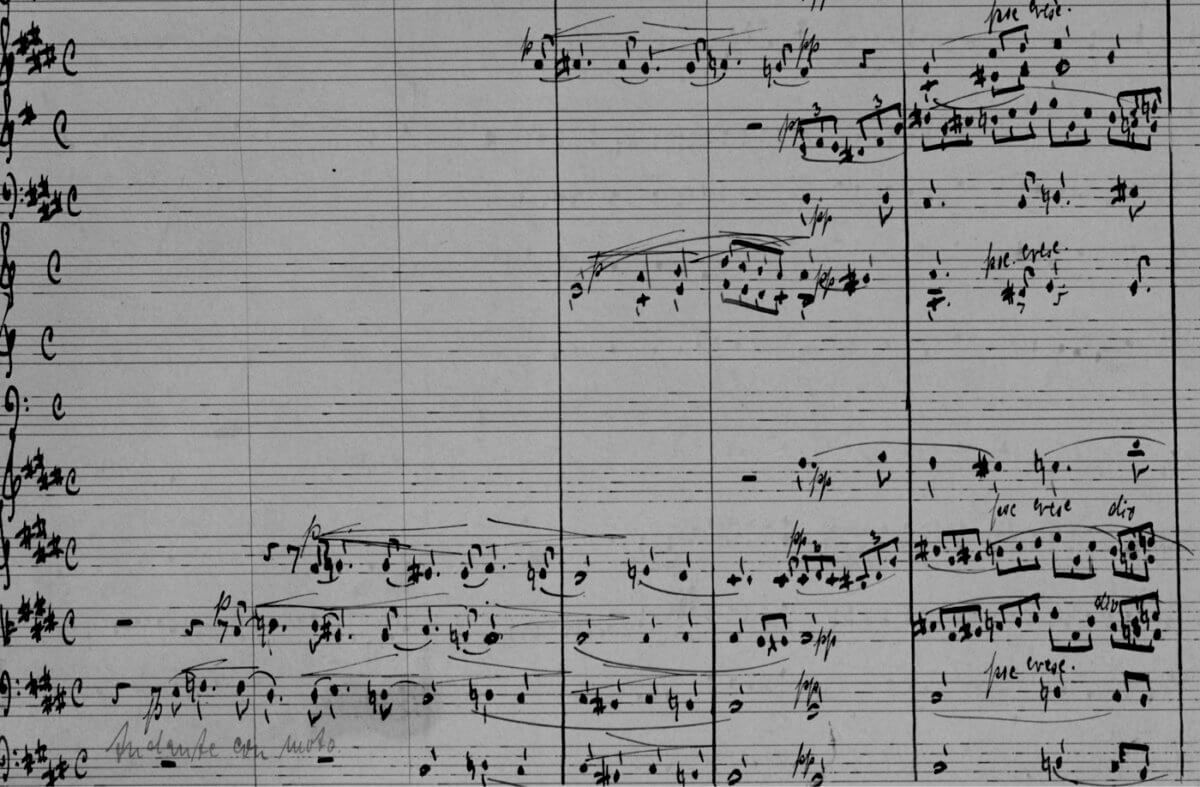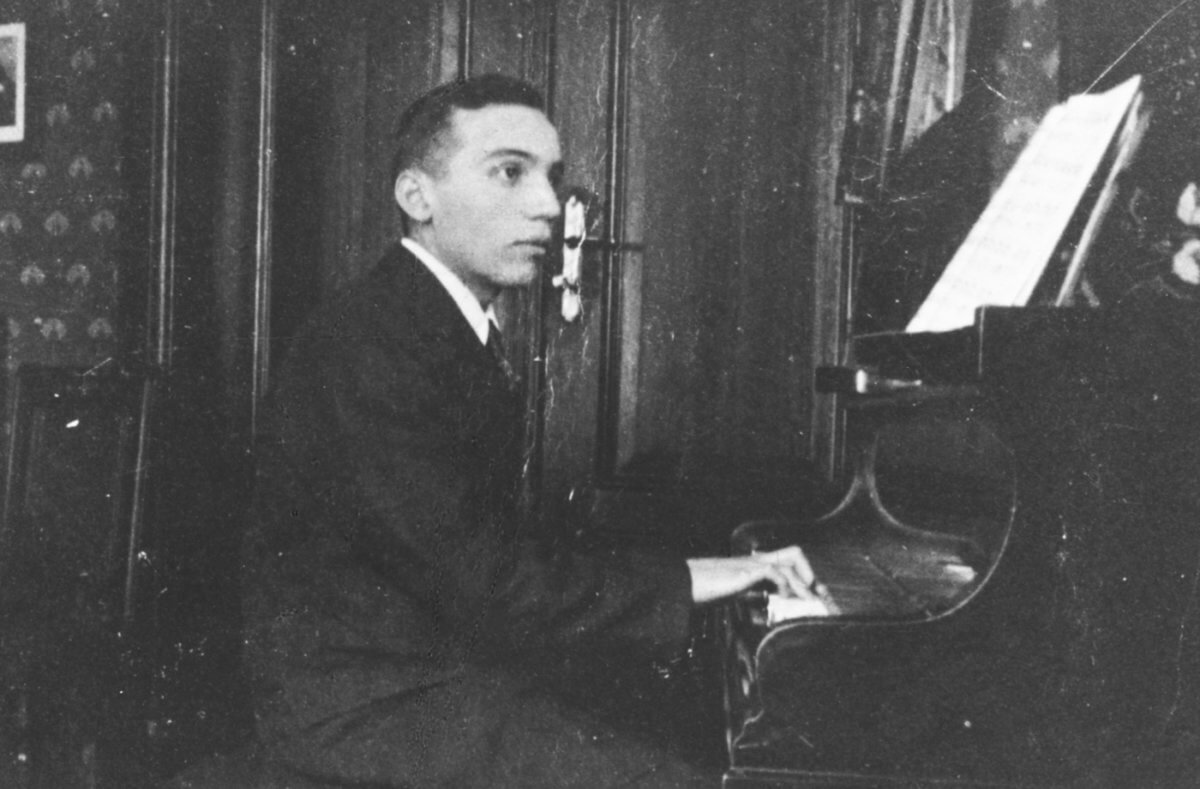Die Bürgschaft (The Bond)
Work Details
Duration
Full Evening
First Performance
10 March 1932, Berlin, Städtische Oper, Carl Ebert, dir., Fritz Stiedry, cond.
For information about licensing this work for use, see our online guide
Full Evening
10 March 1932, Berlin, Städtische Oper, Carl Ebert, dir., Fritz Stiedry, cond.
For information about licensing this work for use, see our online guide
Excerpt sung by Margaret Thompson with chorus, conducted by Julius Rudel; Spoleto Festival USA, 1999
Set in the mythical land of Urb. Cattle merchant Johann Mattes’s gambling losses have left him deep in debt (). His wife Anna advises him to consult grain merchant David Orth before his creditors arrive. Anna describes her weariness as the chorus intones a recurring theme: People do not change, but circumstances change their behavior (). (The chorus, in various forms, plays an essential role throughout the work, narrating and commenting on the action.) The three creditors appear and start repossessing the furniture. Mattes returns with Orth (), who takes responsibility for Mattes’s debt. But Mattes pays everything off himself in two days.
Six years have passed, and Urb has grown. Mattes buys two sacks of chaff from Orth (). Orth’s son reminds him he had hidden his money in those two sacks so that thieves could not find it, but Orth refuses to call Mattes back; he is confident that Mattes will return the money. The three creditors, now highwaymen, ambush Mattes as he passes (). They steal money from his pockets but not the sacks. Orth reveals that he needs the money badly; he fears Mattes will play him false (). In the next scene, Anna and her daughter Luise fret because Johann has not been the same lately. Luise wants to go live in the city, although Anna warns her against it (). Mattes enters, having found Orth’s money; he tries to decide whether to return it (). Mattes and Orth cast off from opposite banks of the river on a foggy evening (). When they find each other, Mattes says that the thieves took everything. At last, the fog grows too thick and they part. The three highwaymen, now blackmailers, overhear Mattes offering to buy land from another man and deduce that he will pay with Orth’s money (). They confront him, but Mattes dismisses them angrily. Then he realizes he must see Orth before the blackmailers do, but the blackmailers reach Orth first. Mattes rushes up and tries to return Orth’s money, but he refuses it. Then Orth denies that Mattes is a thief and says that they will go before a judge to decide who gets the money ().
In the city. The judge rules that Mattes’s daughter and Orth’s son will marry when they are older and the money will be given to both of them (). Then a town crier announces that a new regime has taken over Urb and installed a commissar, who will rule according to the laws of money and power. Anna realizes that Luise has disappeared (); Mattes and Anna cannot find her and leave her behind. The three blackmailers enter and explain conditions under the new regime (). They meet with the commissar and convince him to hire them as spies. The commissar, who reveals totalitarian designs, reviews the judge’s decisions and decrees that Mattes and Orth’s case must be retried. Back home, Anna wonders why Luise ran away (). The three agents force Mattes and Orth back to the city, where the commissar judges the case, as Anna goes out in search of Luise. He rules that the money is forfeit to the new government; Mattes and Orth are consigned to prison ().
Six years later. Urb has grown more urban and industrial but not more prosperous, except for a few at the top. War, inflation, hunger, and disease are looming (); armies are on the march. Mattes and Orth grow wealthy as profiteers, but Luise has not returned (). Mattes bribes the three agents to steal others’ cattle and drive it to his land, so he can sell meat to the army. Anna begs him to go away with her, but he refuses (). War breaks out. The people have no money or food, and they are angry (). Orth refuses to sell flour to a group of impoverished women, even though he has a surplus (), as the famine grows worse. Disease strikes next. A ravaged Luise appears as her dying mother laments Mattes’s cruelty; Jakob Orth tries to give Luise a letter from Anna but she pays no attention (). A mob confronts the three agents and accuses them of stealing their cattle, but the agents blame Mattes (). Mattes pleads for protection from the commissar, but the three agents tell him that he will not get it. Abandoned, Mattes appeals once more to Orth as the mob bears down on him (). Orth turns him over to the mob, which finishes Mattes off as Orth reaffirms the primacy of the laws of money and power.
Libretto
Universal Edition, UE 1527
Revised piano-vocal score (2000)
Universal Edition, UE 1525

